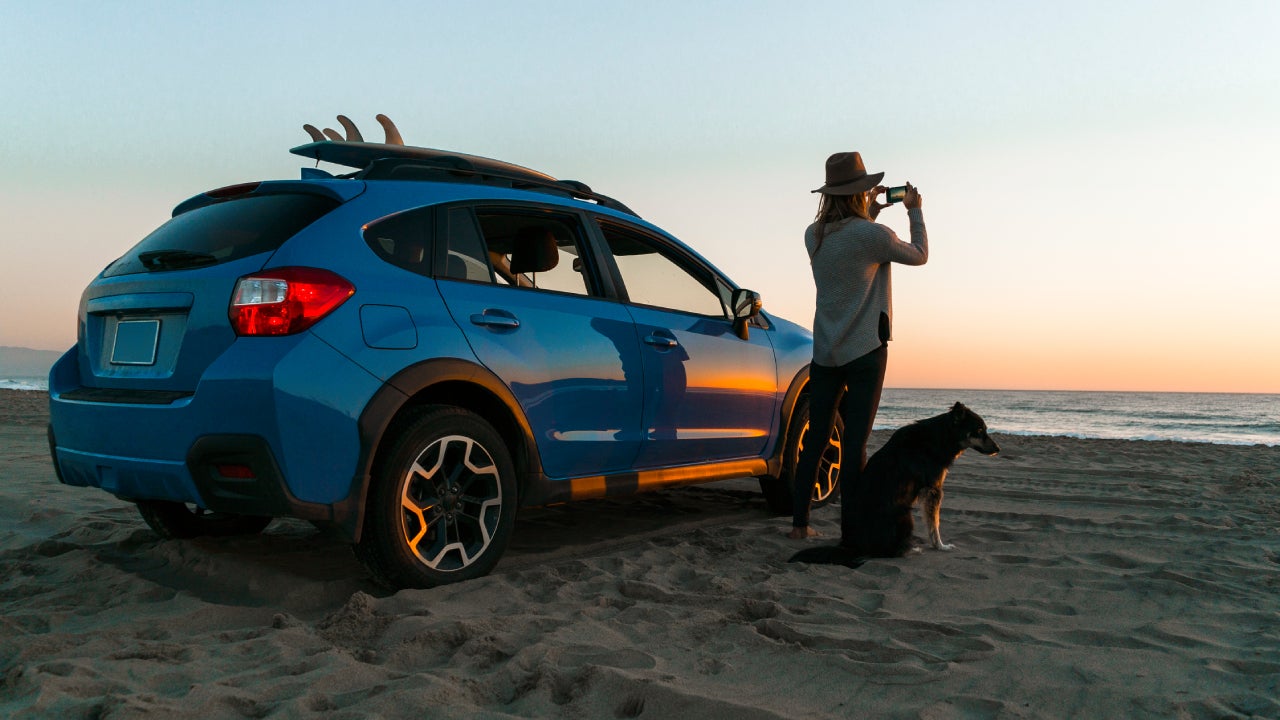Buying a car can be an exciting experience — until the first insurance premium comes due or you need to fill up the tank. That’s when you start to realize the multiple costs involved in car ownership. And that’s not counting the cost of the car itself. The average cost of a new car is nearly $50,000, while buyers of used cars paid slightly more than $25,000. The possibility of new tariffs impacting imported cars and car parts may increase the price more than usual in the coming months, adding another layer of complexity to an already fraught financial market. Add in generally high insurance, maintenance and gas costs, and the average cost of a car can make a significant dent in your wallet.
How much does it cost to own a car?
How much does a car cost overall? Let’s start with the average cost of vehicles in the U.S. According to Kelley Blue Book, in April 2025, the average cost of a new car was $48,699, while used cars averaged $25,547. Your own cost, of course, will vary depending on the make, model, trim and age of the vehicle you purchase. But the sticker price is only the beginning — there are other costs involved in owning a vehicle.
Bankrate’s Hidden Cost of Car Ownership Study, published in August 2024, shows that Americans spend an average of $6,684 per year in hidden vehicle expenses in addition to their lease or loan payments. This study examined the annual cost of car insurance, gas, taxes, and maintenance and repair costs. Since then, everything has gotten more expensive. As of May 2025, the average cost of full coverage car insurance increased to $2,692, putting the updated hidden expenses figure to be $7,047. When we add in the average monthly payment for new and used cars, Americans spend about $15,951 per year on costs associated with a new car and $13,347 for a used vehicle.
Factors affecting the cost of a car
The secondary costs of owning and maintaining a car can be significant. They include insurance, gas, maintenance costs and taxes. Let’s take a closer look at how it all breaks out.
Insurance
The average cost of car insurance as of May 2025 is $2,692 per year for full coverage and $808 per year for minimum coverage. However, your premium may vary based on where you live, the type of vehicle you drive, your driving history, the insurance company you choose and the types and levels of coverage you purchase. Comparing quotes from different carriers and choosing the appropriate amount of coverage for your needs may help you avoid unnecessary expenses. Speaking with an insurance expert may help you maximize the value of your car insurance coverage.
Purchase price and financing
Based on April 2025 data from Experian, the average monthly loan payment for a new car is $742, while drivers paying on a used vehicle pay an average of $525 monthly. Based on these numbers, if you’re on a limited budget, you may be better off purchasing a good-quality used car to keep loan costs in check.
Gas
The national average cost of gasoline sits at $3.14 per gallon as of June 4, 2025, according to AAA. However, this rate changes daily and fluctuates drastically between winter and summer months. Your annual gas cost depends on vehicle selection and other factors, such as the per gallon cost of gas in your town.
Our August 2024 report determined that annual mileage can outweigh the average per gallon price of gas in your state, causing you to pay more at the pump. For example, drivers in Hawaii average 10,980 miles per year and pay $1,978 annually for gas expenses. In comparison, drivers in Indiana pay an average of $2,913 per year for gas despite the lower $3.68 per gallon price due to their higher mileage — an average of 20,560 per year.
Car repair and maintenance
According to the 2024 Your Driving Cost (YDC) report from AAA, the average price of routine maintenance is 10.89 cents per mile if you drive a 2024 medium sedan, with an average 15,000 miles driven annually. Considering these numbers, the average annual cost of car maintenance is approximately $1,634. Your own costs may vary based on your vehicle type, repair costs in your area and how much you drive. Tracking maintenance expenses like oil changes, tire rotations and windshield wiper replacements may help you better budget for these costs.
Taxes
Auto tax rates vary from state to state and even between municipalities. Some states, like Alaska and Delaware, do not have a typical tax for vehicle purchases — Alaska has a motor vehicle registration tax (MVRT) and Delaware has a gross receipt tax for the seller of goods. While your tax rate may be different depending on where you live and your vehicle, the national average annual car tax is $1,182.
Registration
Registration fees vary from state to state. While some states charge a flat fee for all vehicles, others base the registration cost on the age, horsepower or weight of a vehicle. In states like Oregon, car owners might pay as much as $316 in registration fees. Meanwhile, Alabama residents could pay as little as $23. You can find out how much registering a vehicle in your state will cost by contacting your state’s department of motor vehicles.
Depreciation
Depreciation isn’t actually a “cost,” but it is something to keep in mind, as your car’s value will decrease as soon as you drive it off the lot. A car’s depreciation varies widely based on its make and model, age, location, mileage and how well it’s taken care of. AAA’s YDC study reveals the average annual cost of depreciation is $4,680 annually. Typically, brand-new vehicles lose their value quickly, so buying used and keeping the car in good shape may help lower your car’s depreciation rate.
How to calculate the total cost of car ownership
To calculate the total cost of car ownership, begin with the initial cost of the vehicle, and add onto that the amount you will or have paid for interest over the life of your car loan. Include your insurance premiums, fuel costs, registration fees and the amount you spend on regular maintenance, such as oil changes or tire rotation. Determining the exact amount of depreciation is tricky since factors such as the car’s mileage, age, condition and value all play a part in determining your exact depreciation. Kelley Blue Book values can help you come up with a ballpark figure, though. Adding all these factors together can give you a monthly and annual estimate for the total cost of your car ownership.
First-hand insights: Is the cost of car ownership worth it?
As car ownership costs rise, some drivers are reconsidering how many cars are worth owning — if any. To get first-hand perspectives, Bankrate’s insurance editorial team turned to r/personalfinance, a Reddit forum dedicated to financial and budgeting topics. The following comments were in answer to a person who asked about the real cost of owning a car.
*The quotes and citations included on this page have been verified by our editorial team and are accurate as of the posting date. Outlinked content may contain views and opinions that do not reflect the views and opinions of Bankrate.
How to save on car ownership
Although the cost of car ownership can be steep, owners may be able to take steps to keep expenses in check:
- Shop for cheaper car insurance: Insurance companies have different algorithms for calculating insurance rates, so some may offer you cheaper rates than others based on your personal rating factors and coverage needs. Comparing quotes from multiple providers may help you save on your premium.
- Choose your vehicle wisely: The make and model of the vehicle you buy may help you save immediately with a lower price tag and down the road with lower insurance, repair and gas costs. When considering a new vehicle, you may want to research local gas prices, customer reviews, average maintenance costs and average insurance costs across various makes and models before settling on which car to buy.
- Refinance your car loan: Some car loans can be refinanced at a lower rate. It may be wise to check and see if there’s a lower rate available, especially if the market has changed since the vehicle was purchased.
- Consolidate driving trips: The more you drive your car, the more maintenance it will generally require and the more you will spend on gas. It may be a good idea to consolidate errands into one trip, carpool with friends and neighbors and research public transportation options. Driving less might also mean lower car insurance costs, especially if you participate in a telematics program.
- Maintain your car: When it comes to vehicle repair costs, the best defense is a good offense. Having routine maintenance done may help prevent higher repair costs down the road. Early detection of issues can often bring repair costs down.
Frequently asked questions
Read the full article here





